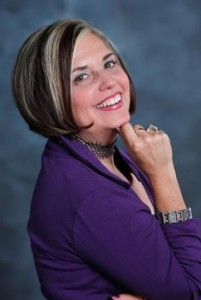Pat Launer on Theater: Festival of Dysfunctional Families
So if, as they say, 98 percent of American families are dysfunctional, what the heck constitutes a functional family? You won’t be finding out in this month’s theater offerings: two black comedies that darkly underline the ‘fun’ in dysfunctional.
Disappearing Dad

At the Old Globe, there’s one of the most acclaimed plays of the past decade: Tracy Letts’ “August: Osage County,” winner of the Tony Award for Best Play and the Pulitzer Prize for Drama (2009). You really shouldn’t miss it; but watch out. There’s so much verbal violence and mean-spirited mudslinging, you’re likely to feel caught in the crossfire. When the relatives go at it, you’d better duck.
The brash, bold epic is as scorching as the Oklahoma season of its setting. We watch, in horror and delight (between barbs, it’s very funny), we watch a family come together and come apart.
We first meet the pater familias of the Weston clan, a drunken, dissipated poet and professor, who’s hiring a young Native American woman to care for his spouse. They’ve struck a bargain in their marriage, he confesses: “My wife takes pills and I drink.” Next thing we know, he’s disappeared, and three generations of kin turn up — three daughters with mates and kids in tow, as well as an aunt, uncle and cousin — descending on the homestead to comfort the doddering mom, a monstrous, drug-addled matriarch who isn’t too far gone to inflict some serious damage on her relations.
The philosophy of this toxically brutal crew can be summed up in one line, spit out by the eldest daughter, Barbara: “Thank God we can’t tell the future. Or we’d never get out of bed.”
That ferocious sibling is played by Angela Reed, a UCSD MFA alumna (1996), whose husband, Todd Cerveris, another graduate of UCSD (1997), is also in the cast. (A third UCSD alum, Carla Harting, returns to San Diego for this production, too).
“It’s a really brilliant cast,” says Reed of the 13 talents marshaled by Obie Award-winning director Sam Gold. “When I first saw the show in New York, I thought it was absolutely amazing. And I thought, ‘Maybe some day I’ll get to play Barbara.’ Of all the crazy characters, I feel she’s closest to me.
“I love how strong she is, so tough. But we also see the vulnerability beneath. With this kind of journey — rage and grief and so much loss (her father, her marriage), there’s still unbelievable humor. She’s angry and sarcastic and filled with rage. But she’s also funny as hell. I’m so looking forward to all the audience gasps and ‘Oh no!’ reactions. You just can’t watch this play without a verbal response.”
Some of that may be due to the astonishing array of addictions and aberrations that get trotted out. In addition to the aforementioned substance abuse, there’s cancer, adultery, divorce, pedophilia and incest. This is Soap Opera on a grand, expansive, delicious and mind-boggling scale.
“It could be a ridiculous farce,” Reed admits. “But there are so many layers. These are real people, in a real household. A lot of it is very, very dark. Incredible secrets keep coming out. They happen to be outrageous, but they’re real. This is not some farcical rollercoaster. These are believable people in crazy circumstances.
“Sam (director Sam Gold) deserves all the amazing buzz he’s gotten. San Diego is very very lucky to have him here. He may never direct outside New York again. His goal is to find the truth in every moment. We’re all having a really good time with it.
“Barbara (my character) is ferocious. It’s an exhausting journey every night, filled with extremes. I get a real workout, mentally, physically and emotionally. But with a play so well written, you get so much back. It buoys you; it’s exhilarating. This play has 13 fabulous roles, every one of them a well-drawn, three-dimensional character. Everyone has a moment, that allows glimpses into their hearts and minds.
“It’s huge, which is difficult for theaters these days, but if it weren’t so brilliant, it wouldn’t be done. People feel so strongly about it. Many think, and I agree, that Tracy Letts and this play will become part of the canon of Great American Playwrights, alongside (Eugene) O’Neill and (Tennessee) Williams. It will be studied.
“It’s set in Oklahoma because that’s as close to the center of America as you can get. There are many metaphors for the state of the country. Amid the shock and laughter and amazement, everyone will find something to relate to.”
“August: Osage County” plays at the Old Globe Theatre in Balboa Park, May 7-June 12. 619-23-GLOBE; www.theoldglobe.org.
Another Crazy Family from Chicago

Chicagoans called it the “Osage County effect,” when Marisa Wegrzyn premiered her new epic, “Ten Cent Night,” in 2008. With her play’s quirky characters and three-hour length, Wegrzyn was said to be following in the footsteps of Tracy Letts and his opus (see above).
Set in 1973, “Ten Cent Night” is a great big slab of Texas gothic, a sprawling comedy that, like “August: Osage County,” begins with a disappearing dad. This one also won’t be making a comeback; he’s just shot himself in the head. He was a famous country singer (his big hit was “Ten Cent Night”), and his wannabe-singer daughter is boozing her way back home to West Texas to save her younger sister. Along the way, she meets a mute young man, has a brush with the law, encounters a questionable figure by the side of the road and arrives at the family manse toting a suitcase full of stolen cash, handcuffed to a folding chair. Then the real fun begins; we get to meet all four of the lost, estranged siblings — two pairs of twins. After confronting all their conflicts, competitions, secrets and resentments, they learn to come together for mutual support — even if that means getting away from each other again.
Having produced Wegrzyn’s darkly hilarious comedy, “The Butcher of Baraboo” in 2009, Moxie Theatre founding artistic director Delicia Turner Sonnenberg couldn’t wait to sink her teeth into the playwright’s latest offbeat creation.
“I love her writing,” says Sonnenberg. “Both these plays are real ensemble pieces. The characters are great, and the writing is so muscular. The imagery is wonderful. This play has loads of theatricality and symbolism. The whole thing feels like a country Western song — beautiful and funny and heartbreaking at the same time.”
One of the central images is the ten cents of the title: what it means and what it can do. Pay for a phone call, for one thing (it’s the 1970s, remember), or get you just about anything you want in the gritty local bar run by the town madam.
“The play is all about the pain of going home,” says Sonnenberg. “Back to the kind of flat, dry, isolated community you can’t wait to get away from. It’s about heartbreak — both figuratively and literally, since one of the younger twins has a heart problem. They’re all dealing with heartbreak of one sort or another.
“Everyone’s family is a little bit crazy,” Sonnenberg concedes. “When they get together, there’s a lot of crazy, a lot of comedy — and a lot of pain. No one can hurt you like your family. But you’re stuck with them.
“This play is flat-out funny,” she asserts. “It’s all about why we love and hate family. About what’s beautiful and ugly. And how something beautiful can come from something ugly. There’s also the notion that sometimes, something extraordinary, even magical, can happen. Or something beautiful can happen even to someone who’s not necessarily a beautiful person. The characters learn that sacrifice can lead to the possibility of redemption.”
Sonnenberg isn’t giving too much away, because it’ll spoil the fun for the audience. To get all the details behind her somewhat cryptic descriptions, you’ll just have to see the play for yourself. And bring your dysfunctional family.
“Ten Cent Night” runs May 27-June 26 at Moxie Theatre, 6663 El Cajon Blvd, in the Rolando area near SDSU; 858-598-7620; www.moxietheater.com.

Pat Launer is an Emmy Award-winning arts writer and theater critic who’s written for newspapers, magazines, radio, TV and online. Her theater reviews can be heard weekly on KSDS-FM, and she writes regularly for Patch.com. Pat has been named a Living Legacy by the Women’s International Center. www.patteproductions.com.
